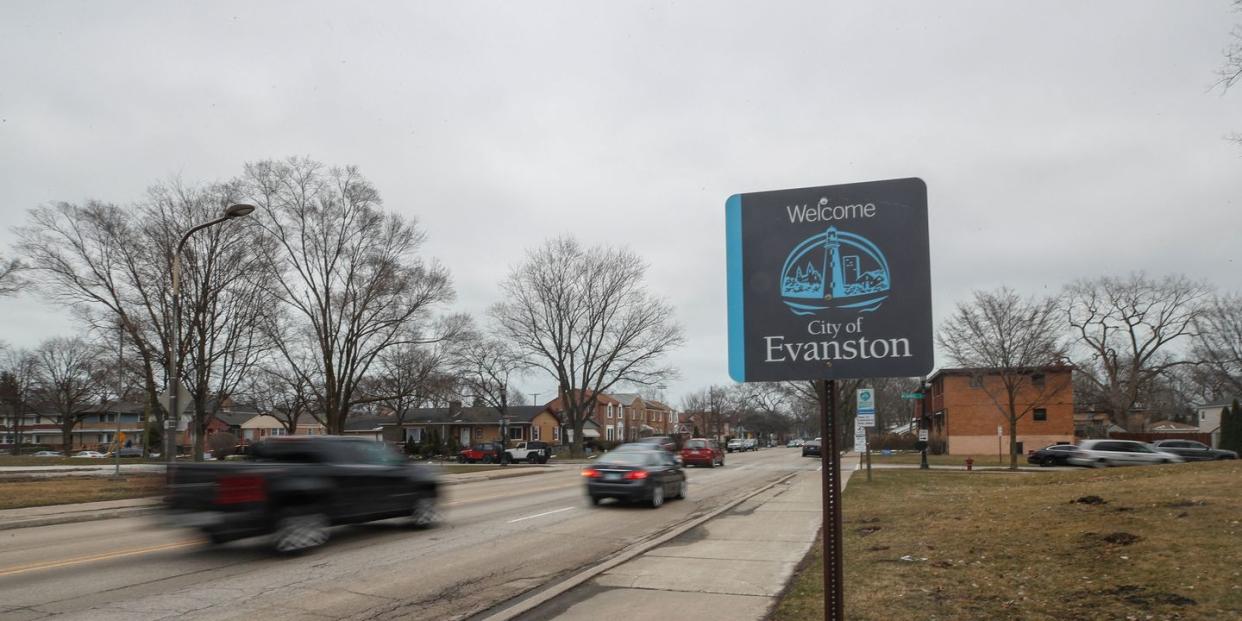A Chicago Suburb Becomes The First In The Nation To Distribute Reparations For Black Residents in the Form of Housing Grants

History was made this Monday as the Chicago suburb of Evanston, Illinois made its first move to provide Black residents with reparations. The first phase of this local reparations fund, known as the Restorative Housing Program is aimed at alleviating some of the harm done to Black Evanston residents due to discriminatory housing practices carried out by the city.
The program, which comes to fruition after an 8-1 council meeting vote, allocates $400,000 to be distributed to Black residents via $25,000 housing grants. Eligible recipients are Black residents of Evanston who lived in the city between 1919-1969 and/or those who are direct descendants of a person meeting those criteria, as outlined in a memo from the city. The grants can be used towards a down payment on homes, home repairs, or mortgage assistance.
Currently, Evanston's population is comprised of about 16 percent Black residents, which means the housing reparations funding should ideally reach 12,000 people out of a total population of 75,000.
Alderman Robin Rue Simmons established the Evanston program back in November 2019 in an effort to tackle the legacy of wealth gaps, housing inequalities, and the disproportionate of arrests tied to marijuana possession that have affected the Black community.
"We have a large and unfortunate gap in wealth, opportunity, education, even life expectancy,” Simmons told NPR back in 2019. "The fact that we have a $46,000 gap between census tract 8092, which is the historically red-line neighborhood that I live in and was born in. And the average white household led me to pursue a very radical solution to a problem that we have not been able to solve: reparations."
I’m honored to join NAARC as a Commissioner and continue the work towards justice and full Repair for our people. @ReparationsComm @kammh @ministter @Nkechi_Taifa @IvaCarruthers @NCOBRA40 https://t.co/BnkkET8IKz
— Robin Rue (@RobinSimmons888) March 17, 2021
Simmons was recently appointed as Commissioner at the National Reparations Commission, were she will work after her term as Evanston’s Alderman ends on May 15th.
“I look forward to adding my local legislative experiences to the NAARC toolbox to advance Reparations and all forms of Reparative Justice for Blacks in Evanston and nationwide," said Simmons in an official statement.
Despite this progressive move by the city council, some feel that this form of reparation does not adequately address the systemic racism that the Black community has faced, especially given some of the hurdles to successful home ownership.
At least one Facebook group, Evanston Rejects Racist Reparations, has arisen in protest to the program: "With the reparations program being based on housing, qualifying applicants would be able to access $25,000 toward a down payment on a new property, mortgage assistance, or housing renovation; however, residents would still need a large influx of cash for any down payment and have good credit to secure any mortgage from bank," the group noted in a Facebook post. "The forces that had been historically benefiting from the racist policies of redlining and housing discrimination are now benefiting from a program aimed at undoing their harm."
However, others hope that, despite imperfections, as one of the first reparation programs in the U.S. to target Black residents, the program can help to set a much-needed framework for other cities to follow throughout the nation.
"It doesn't mean every city will do it exactly as Evanston has done, but there's a blueprint there," Ron Daniels, from the National African American Reparations Commission, told CBS MoneyWatch.
Applications for the program will begin being accepted later this year.
Follow House Beautiful on Instagram.
You Might Also Like

